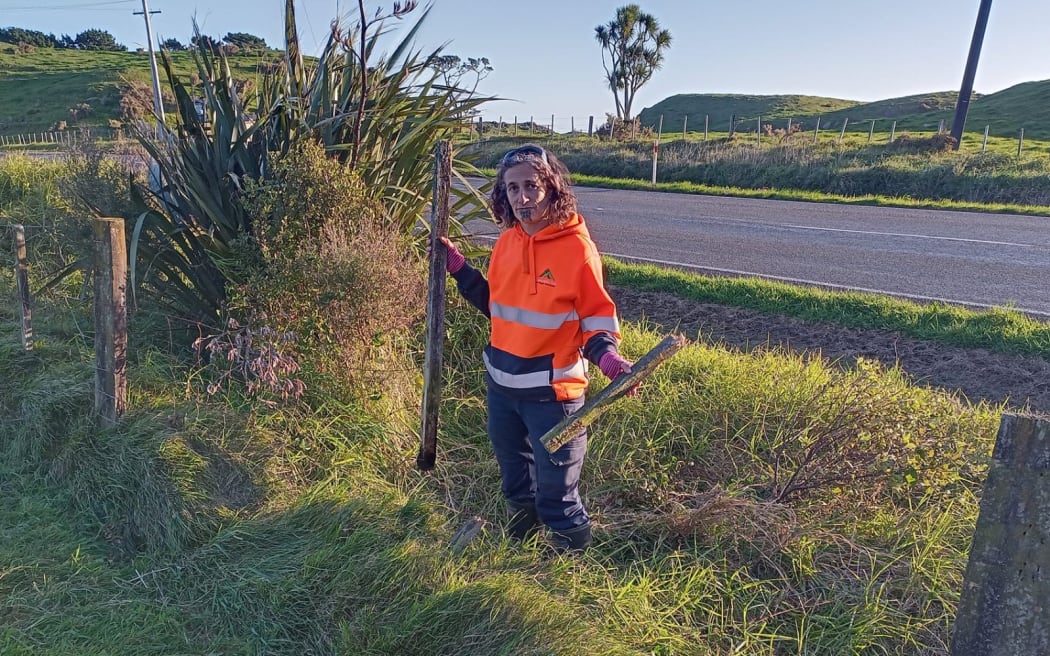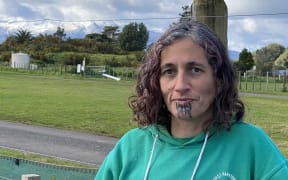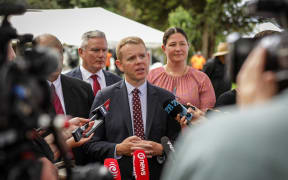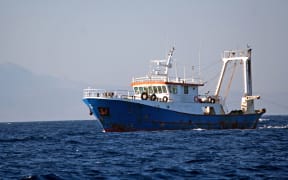
Tuhi-Ao Emily Bailey is not optimistic the tribunal decision will achieve real change. Photo: Urs Signer / supplied
The Waitangi Tribunal is to hold a "priority" kaupapa inquiry into government climate change policy.
The tribunal has been considering two applications on climate change - one from David Potter on behalf of all Māori for a priority inquiry, and another from Tuhi-Ao Emily Bailey of Climate Justice Taranaki for an urgent inquiry.
In her claim, Bailey argued the Crown was not doing enough to protect Māori from climate change.
"It's really a claim to say they are not doing enough to protect Māori through their action or lack of action on climate change. They are not putting in the legislation to cut emissions from the big polluters. They're not putting in the legislation to protect communities from climate effects."
The Crown countered that it was a signatory to the Paris Agreement and had increased its ambition to reduce emissions and align with global efforts following advice from the Climate Commission.
It also said "that through the National Adaptation Plan, the Emission Reduction Plan, and the Climate Adaptation Bill, substantial changes will be made to reduce emissions and address complex issues associated with managed retreat".
The Māori Climate Platform was also pointed to as a key action from the Emission Reduction Plan 2022, which would "play a central role in ensuring continued Māori engagement in the setting of national climate change policies".
In its decision on Friday, the Waitangi Tribunal noted the allegation was that the Crown had not upheld its Treaty obligations in relation to the development of climate change policy.
"Given the obligations that flow from the Treaty relationship, and the risk of heightened impact of climate change effects for Māori, consultation with Māori should be thorough, widespread, and meaningful and resulting policy developed to take Treaty principles into account," it said.
"Climate change is an existential threat not only to the claimants, but to Māori and the nation. All credible evidence points to climate change as a significant and potentially irreversible threat unless governments take urgent action.
"Māori have a unique and significant relationship with te taiao and the tribunal can provide advice and guidance to the Crown as to interpretation of Treaty principles in this context."
The tribunal decided climate change would be considered as part of the bundle of claims captured by the Natural Resources and Environmental Management priority kaupapa inquiry which is eleventh in the queue waiting to be considered.
Bailey said it was significant the decision came soon after Supreme Court allowed Far North iwi leader Mike Smith to sue seven big polluting companies for their role in causing climate change.
"So, we're going to the Crown who is enabling those big companies and so this is a claim under Te Tiriti saying what they are doing is not protecting Māori and our rights for the protection of our territories, our taonga and our communities."
She was not optimistic the tribunal decision would achieve real change.
"To be honest the tribunal can't make the government do anything and this new coalition government is unlikely to pay too much attention to it, but what we really want to do is highlight what's going on to the general public and individual MPs and to say 'this is really urgent and important and you need to take this seriously'," Bailey said.
"It's more like a moral than legal imperative on them to do the right thing."
New Zealand First deputy leader and government minister Shane Jones recently indicated the Waitangi Tribunal itself needed to be reviewed.
Set up in 1975, the Waitangi Tribunal is a standing commission of inquiry that makes recommendations on claims brought by Māori relating to legislation, policies, actions or omissions of the Crown that are alleged to breach the promises made in the Treaty of Waitangi.
At Rātana last month, Jones said the Waitangi Treaty was the country's foundation document, however, it had been "distorted" by some decisions made by the courts and the Waitangi Tribunal whose members wanted to write a new constitution.
The Waitangi Tribunal's writ would be reviewed, as per the coalition agreement, he said.
Jones cited a figure of 60 to 70 percent of Māori children not going to school regularly which should be of more concern to Māoridom than "the rantings" of the Waitangi Tribunal.





